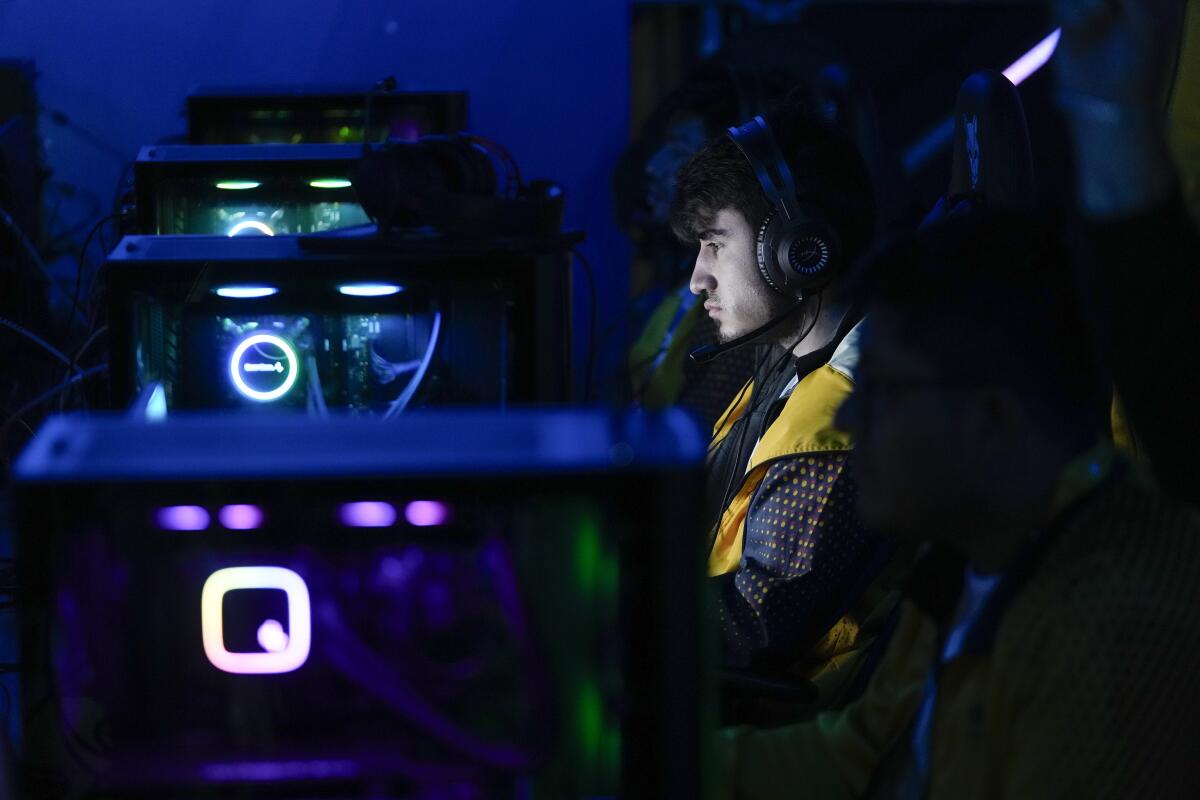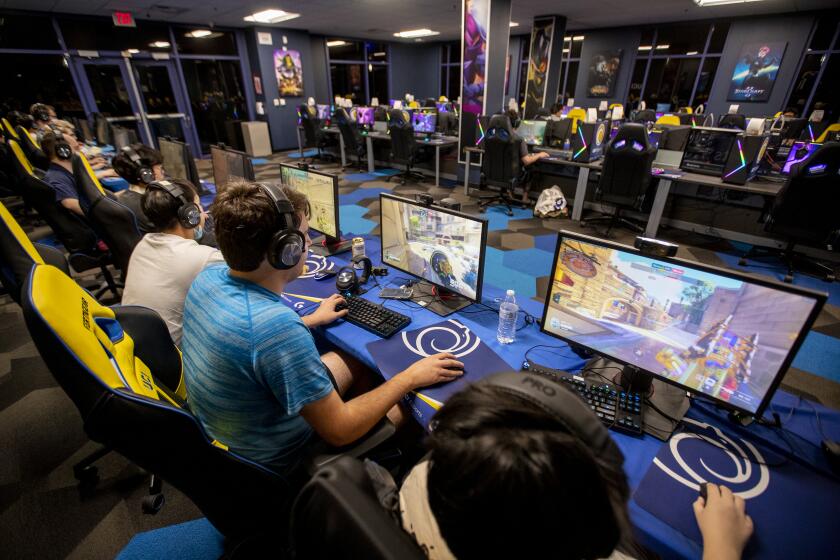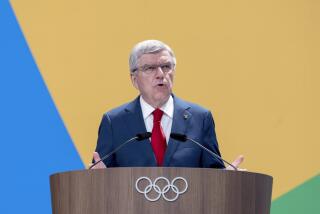IOC faces challenges as it moves to add Olympic esports without any violence

Now that the Olympics have inched closer to adding esports — video games — to the traditional menu of actual running and swimming, officials face a delicate balance.
Can they use gaming to attract a new generation of fans while avoiding all that virtual blood and violence?
This question looms over last week’s announcement that International Olympic Committee members will soon vote on — and are expected to approve — the creation of the Esports Olympic Games.
The event, which would be held separately from the conventional Olympics, could debut as soon as next year.
LA28 has proposed adding paraclimbing to the 2028 Paralympics after sport climbing was a surprisingly popular addition to the Tokyo Olympics in 2021.
IOC president Thomas Bach made it clear that, in terms of shooter games and other violent content, “our values are and remain the red line that we will never cross.”
This stance has kept many of the most-popular video games — “League of Legends,” “Overwatch” and “Valorant” — on the other side of the line. And kept many gamers at arm’s length.
“It won’t be on a lot of their radars unless the Olympics play the games they play,” said Mark Deppe, esports director at UC Irvine, which offers game design studies and fields several teams in college esports leagues.
The IOC has been studying esports for about six years, carefully testing the waters by conducting forums and trial runs.
More than 130 players took part in the Olympic Esports Week in Singapore last summer. The approved games included “NBA2K23” and “Gran Turismo 7.” Virtual sports had players wearing virtual-reality headsets for taekwondo or grinding away on stationary bikes for cycling.
UC Irvine has become one of the to-go powerhouses for aspiring esport collegiate athletes. The team develops athletes and competes for NCAA championships.
There was also chess and, curiously, a hand-to-hand combat game called “Street Fighter 6.”
“I appreciate the red line and agree the IOC needs to stick to its values,” Deppe said. “It feels a little subjective right now.”
IOC esports events have generated more than six million views, with people aged 13 to 34 comprising three-quarters of that audience, the committee says. Bach believes his organization is “keeping up with the pace of the digital revolution.”
But when the committee’s executive board members proposed the creation of the Olympic Esports Games last week, they made it clear the new venture would operate separately from the Olympic Games in terms of organization and financing.
The vote to approve is scheduled for an IOC session preceding the 2024 Summer Games in Paris, which has already raised eyebrows with the addition of breakdancing.
LA28, the organizing committee tasked with staging the Los Angeles Olympics in 2028, named Reynold Hoover its new CEO at a pivotal time.
Noting the challenges ahead, Deppe wonders if the Olympic movement can form a mutually beneficial partnership with video games as it has with alternative sports such as surfing and skateboarding.
“It could connect younger folks to maybe their parents and grandparents who don’t understand gaming,” he said. “It could bring more people into esports.”
More to Read
Go beyond the scoreboard
Get the latest on L.A.'s teams in the daily Sports Report newsletter.
You may occasionally receive promotional content from the Los Angeles Times.









